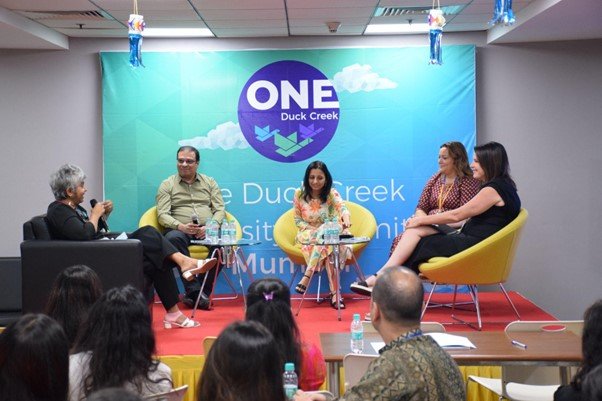Covid-19 changed the way we approach life. The lockdown redefined work cultures, ethics, and normalcy.
Leaders faced new challenges due to the shift to virtual work models. The ‘New Normal’ workplace required us to step up. Remote working, once an occasional event, became the norm.
The change is overwhelming and much to process. But, it is possible to hone leadership skills through the executive coaching process.
Here are some coaching inputs that might benefit you and your teams in the ‘new normal’ workplace.
Contents
1. Remote Team Management
The shift to remote work is one of the most significant changes. Communication and virtual collaboration have emerged as leaders’ most prominent challenges.
Remote work environments can lead to confusion and ambiguity. Team members could feel left out or have lax behavior. Projects could go haywire.
Leadership coaching can help leaders to :
- Set clear expectations for team members.
- Foster community and connection.
- Use technology to ease communication and collaboration.
2. Virtual Communication
Virtual channels gained prominence as most communication occurs online. Virtual communication requires more nonverbal signs than face-to-face communication. Hence, making it more rigid.
Virtual conversations miss the ‘tone’ of messages. Some people might feel invisible and dispensable. Virtual communication might lead to misinterpretation of messages or wrong understanding.
Leadership coaching can support leaders to:
- Refine their communication skills.
- Understand the nuances of virtual communication.
- Change the approach to meetings by making it more inclusive to accommodate all the team members.
You may read about: The difference between Leadership Coaching and Training?
3. Crisis Leadership
Leadership should adapt to changing circumstances and make difficult decisions during crises. A crisis can bring out old coping patterns – fight, flight, or freeze responses.
Most people need help to understand their strengths and weaknesses. They might need more decisiveness and quick judgment. They might want to deal with challenges in the traditional way. They might need more time to be ready to make complex business choices.
Leadership coaching can help leaders to:
- Build adaptability, resilience, and a strategic mindset.
- Identify strengths and weaknesses with a plan to address them.
- Build an innovation mindset that helps with breakthroughs.
4. Adaptability
Coaching can help leaders step up even when the path is unclear, even when they don’t know how! It is a powerful trait to be comfortable with the unknown, and successful leaders must aspire for it.
Change is the only constant, but most of us oppose that idea. We can have resistance to new ideas. Leaders too can get too comfortable with their environments and old ways of working.
Leadership coaching can help leaders to:
- Get comfortable with uncertainty.
- Be open to new ideas.
- Pivot when necessary
@ J s Lalitha this reminds me of the CCC sessions we co-designed for your Cerner team. This was an important move that helped your leaders cope and establish a new baseline for connection and communication in their teams.
Read Lalitha’s complete testimonial here.
5. Resilience
Leaders face unprecedented stress and pressures in the new workplace. Resilient energy is the fuel for leaders to stay healthy and effective. Leadership coaching can help leaders change and become resilient.
Sometimes, people dwell on past mistakes, and leaders are no different. They might take time to recover from past setbacks, but time might be a luxury they don’t have.
Also read: 5 Reasons Why Leaders Don’t Ace Delegation?
Leadership coaching can help leaders to:
- Introduce practices to manage stress.
- Set boundaries and maintain work-life balance.
- Learn a mind-body-spirit approach to resilience
I recollect doing several sessions on resilience in 2021-2022 as it was the topic of the time and more recently a keynote talk on Resilience Mastery at @Duckcreek Technology. This will be an evergreen topic given our current business landscape.

6. Strategic Thinking
Strategic thinking is one of the cornerstones of successful leadership. The uncertain business environment needs leaders who can think on their toes. Strategic thinking also provides a competitive advantage that adds value to organizational goals.
In the wake of challenges, most people fail to see the path. Problems might throw them off guard and make them uncomfortable. They might not be able to see the big picture. They might focus on something other than the positives.
Leadership coaching can help leaders:
- Speed up strategic thinking skills.
- Plan long-term.
- Predict future trends.
- Identify and capitalize on opportunities in real time.
@Shlipa Ajwani I remember the fantastic 2 hour session you did for the Power Up Leadership cohort. They received some perspectives unmatched and coming from your rich experience.
Five other qualities that coaching can sharpen in leaders are:
1. Empathy
Leaders must care for the emotional well-being of employees in stressful times. It is crucial to acknowledge team members’ struggles and efforts. To develop empathy is an important leadership skill.
2. Innovation
New problems need creative solutions.
3. Empowerment
Accountability and engagement make employees feel empowered.
4. Transparency
Successful leaders must be approachable and keep communication clear and open. Hence, instill faith in their team members, stakeholders, and customers.
5. Digital skills
Technology is keeping the ‘new normal’ workplace functional. Due to the increased use of tech, it is pertinent for leaders to learn digital tools & platforms.
The current business environment is full of uncertainty. Coaching can help leaders develop the necessary business mindset to deal with them.
Coaching can lead to a growth mindset overall and you can read more about it here.


